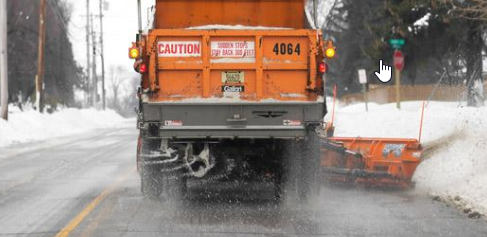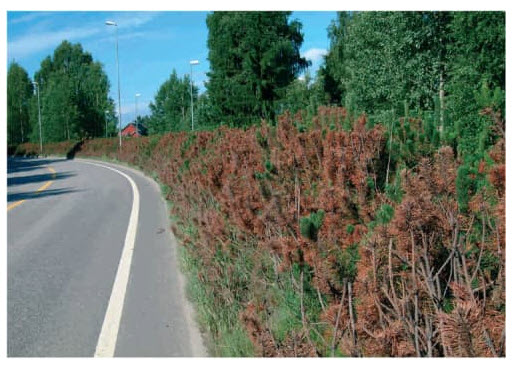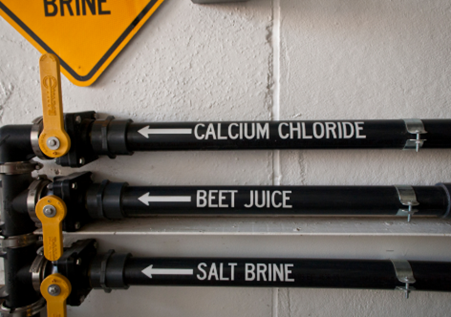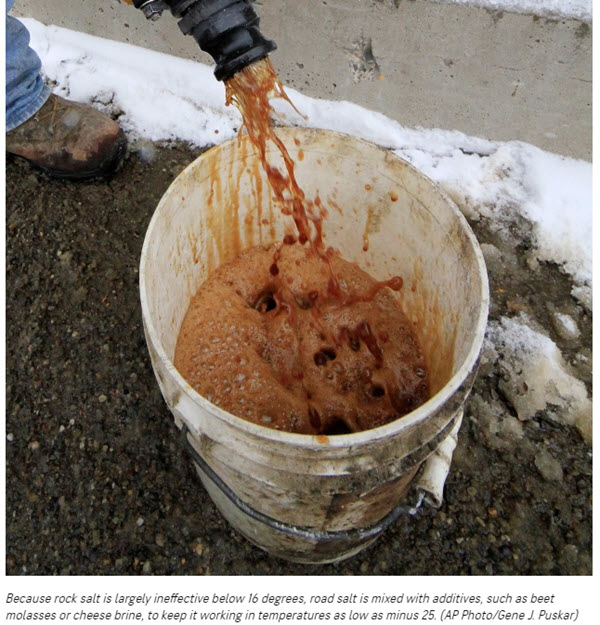Click below to listen to my 2 min. Garden Bite radio show/podcast: Road salt alternatives
I’ve already had a couple of white knuckle commutes and watched semi’s jackknife and get t-boned.

Road salt and salt alternatives are today’s Garden Bite subject.
We all know by now that salt is NOT good for lawns or most plants. It’s taken years for state Departments of Transportation to figure out how to use it with more discretion and find alternatives. Back in the 1930’s New Hampshire was the first state to use rock salt, bigger chunks of table salt, to help melt snow on roads and later, sidewalks.

In 2018 it was estimated that 20 million tons of rock salt are used throughout the States each year. The purpose of salt is to lower the freezing point to facilitate melting and prevent water from freezing. However, once temps get below 14 degrees, it loses effectiveness.
This is the LINK to the article from Columbia University stating how much is used. I found that the “amount” used varies considerably! The bottom line is that once the salt is in out waterways it stays there. The environmental impact of using so much rock salt reaches further than our lawns, shrubs and trees. It impacts out drinking water by adding too much saline due to runoff which also affects wildlife.

As for alternatives, sand is one, however, while using a salt/sand mix of 5 % and 95%, certainly reduces the salt content, the SAND isn’t popular because it’s extremely expensive to clean for reuse and is often disposed of after the season is over. It can also run off roads to clog sewer systems or any other kind of run-off infrastructure.

More and more cities are beginning to use beet juice or molasses to battle icy roads and walkways. The brine from cheese making and pickling has the same benefits as beet juice and has been gaining popularity in use as well.
This article from Ecowatch in 2021 offers 8 sustainable options and interesting information. The fact is all of them have some sort of cost. It’s a balance of what we’re willing to “pay”. And yet more from Accuweather.

